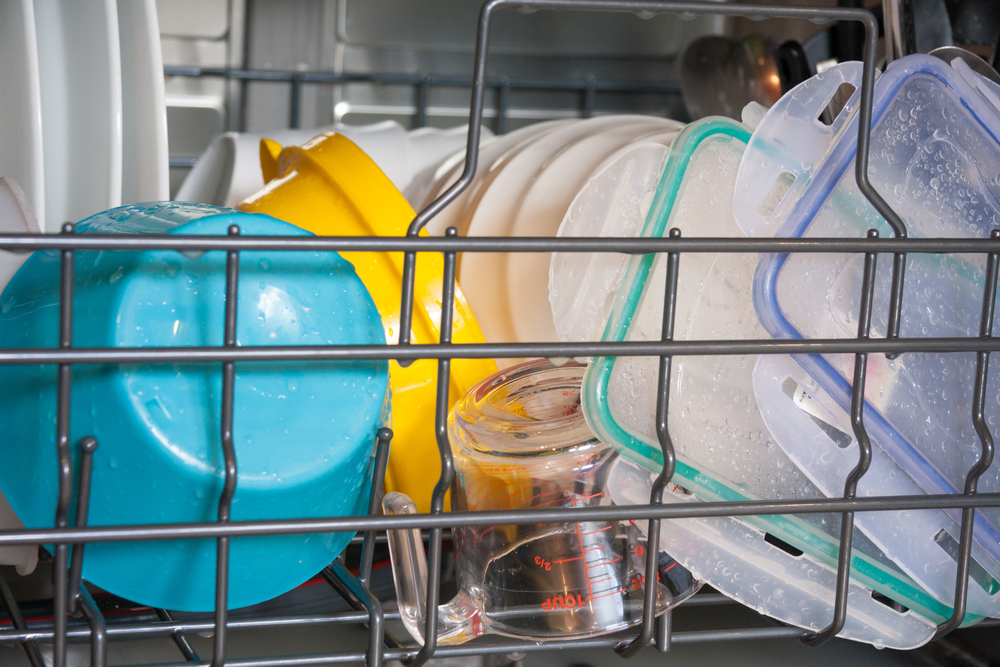One of the great luxuries of modern life is the dishwasher. No one realized that having to wash dishes was such a heartache until the dishwasher came along. Soon life without it seemed much more difficult. Dishwashers do make life easy as long as you use them in the right way. You pop your dishes in, press a button and later your dishes appear sparkling clean, washed and dried, and ready to be put away. Except for those pesky plastic containers. For some reason, they are always wet. Let us tell you why.
Ok, first of all, we have to admit that dishwashers are far from the perfect invention. The fact that you need to rinse off all your dishes and remove any stubborn stains in some ways makes them a little pointless. There is nothing worse than opening your dishwasher and seeing dirty dishes. However, by using a good detergent and stacking your dishwasher properly, as well as a light rinse, you can save yourself a lot of hassle.
Yet whatever happens those plastic containers will always come out a little wet. Every time I unpack my dishwasher I forget that the plastic containers will be wet and I find out by allowing water to fall on the floor or the nice outfit I am wearing or something else. It can be infuriating.
It turns out that my dishwasher is not to blame, science is. Science causes so many issues in my life I sometimes think we would be better off just getting rid of it! Plastic dishes do not dry as well because they have a lower thermal mass compared to other items in our dishwasher. This means that they are faster to cool. If a dish cools the moisture on the dish won’t evaporate because the necessary heat is missing. So even though the dishwasher is still pretty warm, the dish itself is now cooling quickly. That means there is nothing to get rid of the moisture droplets on the plastic containers.
While science is to blame we can also point the finger at dishwasher manufacturers. The dishwasher is not designed with plastic containers in mind. When they test the dishwasher they traditionally don’t put any plastic containers in it at all. This means that the problem of wet plastic was not discovered until consumers complained about it.
Today many companies are now addressing this issue. New dishwashers will often come with a dual drying system that promises to dry all dishes, including plastic ones. While that is great to hear, it is not a reason for most to go out and buy a new dishwasher. For those of us who are stuck with our older machines and wet plastic, manufacturers do have some advice. They suggest that we use a high-quality detergent, allow the machine to run a full cycle, and only ever place plastic containers on the top rack of a dishwasher. That will give them the best chance to dry but likely won’t solve the problem completely.
So it appears that those of us who have a few more years left in our dishwashers will simply have to suffer the trials of hand drying our plastic containers. While this is barely a big enough issue to even register, it is one more complaint on the list of issues we have with the dishwasher itself. For an appliance that was supposed to save a lot of time and frustration, it does cause a lot of frustration and waste a lot of time. Personally, when it comes time to throw out my current dishwasher I may just replace it with a little elbow grease and a sponge.





